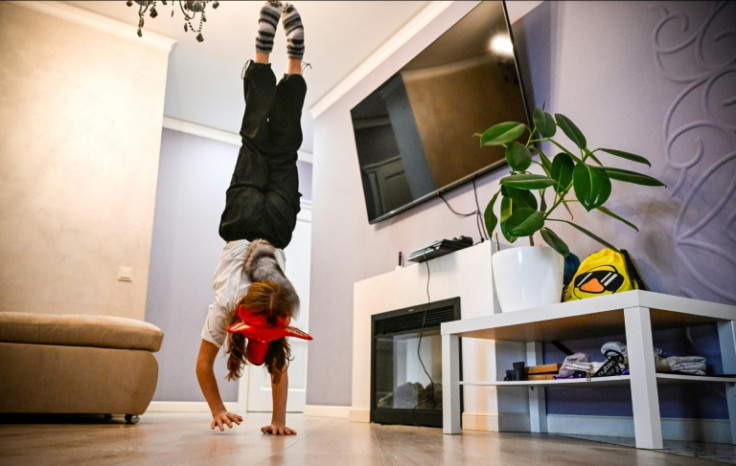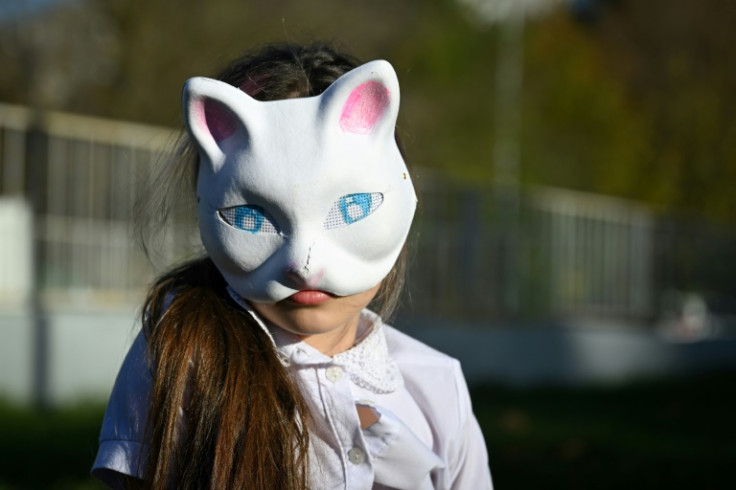Fur Flies As Russia Takes On Young Fans Of 'Quadrobics'

Yana, a 12-year-old Moscovite, is worried she will have to give up her hobby of quadrobics -- a fitness and social media trend that involves imitating the movements of four-legged animals.
Russian officials, Orthodox clergymen and pro-government intellectuals have harshly criticised the trend in recent weeks, portraying it as a dangerous import from a decadent West.
In line with a hardening of Russia's ultra-conservative social agenda since the start of the offensive on Ukraine in February 2022, lawmakers have recently proposed to ban quadrobics.
The proposal comes after similar interdictions against the LGBTQ movement and even against couples that don't want to have children -- moves touted by Moscow as necessary to defend Russia's "traditional values".
"We are being told how many children to have and how they should play? Seriously?" said Yana's 38-year-old mother, Yulia, a travel agent.
Yulia spoke on condition of anonymity fearing potential repercussions in Russia's increasingly repressive environment.
In their upmarket Moscow apartment, Yulia helped her daughter sort through the various bushy tails and cat and fox masks she has made.
Yana, who prefers to do quadrobics at home or in a park with friends, said it is "too cool".
"Physically, I have become stronger. I can walk on my hands!" she said.
The emerging trend has raised hackles in some circles.
It was the subject of a roundtable in Moscow in July on "the struggle against Satanism" and is debated at length on state television news.
Irina Volets, the commissioner for children's rights in the Russian republic of Tatarstan, said recently she had received "numerous complaints" from people concerned about "the dehumanisation of children" as a result of the trend.
"Quadrobics" and "furries" -- a similar community of people who like to dress up as animals -- "are heads of the same hydra along with the LGBT movement," she said.
Russian Orthodox Church official Fyodor Lukyanov said that quadrobics "is not a child's game or sport but a subculture... which prepares children to adopt anti-values like those of a plurality of genders and LGBT."
Vyacheslav Volodin, the speaker of Russia's lower house of parliament, said last month: "We are at a stage where we are being pushed not only to renounce our gender identity but also our human identity."
He called quadrobics a trend "from the United States and the West".
Russian pro-Kremlin singer Mia Boyka drew attention to the trend in September when she humiliated a young fan dressed as a cat with a series of questions in an on-stage interview.
"Today it's a cat, tomorrow a dog. The day after tomorrow she will decide she has become a boy... and we will have Mother 1 and Mother 2 in our families," she said.
Yana's mother Yulia dismisses this saying: "Horrible! Where do they get this from?
"It's just our children having fun. There will come a time when they will all become boring adults," she said.
But ultra-nationalist lawmaker Andrei Svintsov, who is behind a bill that would fine people for practising quadrobics, said it was "disgusting".
The trend was one of several "imposed by the West" which "aim to destroy our demographics", he said, referring to a steep demographic crisis in Russia which President Vladimir Putin has promised to address to no avail after more than a quarter century in power.
Konstantin Kalachev, an analyst, said Russian authorities were "driving this debate to create a division between Russians and the West".
And it seems to be having an effect.
A survey by the pro-Kremlin polling institute VTsIOM found that 35 percent of Russians agreed quadrobics was a "nefarious foreign influence" and a third want to ban it.



© Copyright AFP 2024. All rights reserved.




















